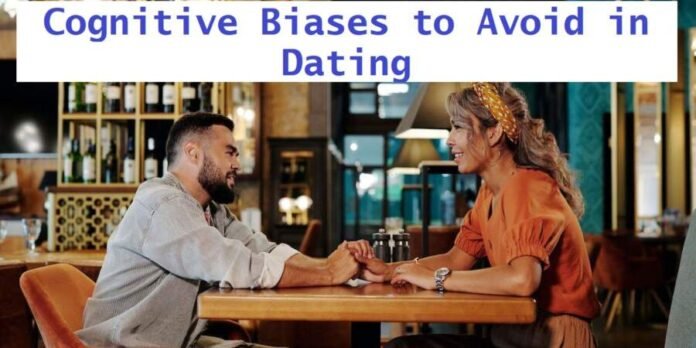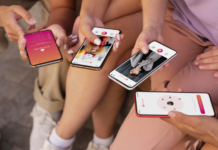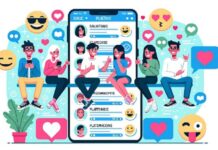These are the top 12 cognitive biases to avoid in dating. Dating is fun and brings happiness, but it can be tricky too. One challenge is cognitive biases, which are automatic thoughts that affect our decisions without us realizing it. These biases can lead us to misunderstand situations and make wrong judgments. Learning about these biases can help us date better and avoid common mistakes. Also, you need to make sure the cognitive biases don’t affect your chances at a beautiful relationship. Let us jump into the article without further ado.
Confirmation Bias
Confirmation bias is a common way our minds work that can affect dating. It means we tend to look for and believe things that support what we already think. In dating, this means we might only see the good things about someone we like and ignore any bad signs. Also, we might also interpret things in a way that makes us believe the person is interested in us, even if they’re not. This can make us blind to the real truth about the person and lead to making poor decisions in dating. Make sure you do not have any confirmation bias lingering within while dating.
Halo Effect
The halo effect happens when we judge someone based on one good quality they have. We assume that because they have that good quality, they must be good in other ways too. For example, if someone is attractive, we might think they are also kind and smart. Also, this can influence our dating decisions, as we might be more interested in someone just because they are good-looking, even if we don’t really know them well. Furthermore, we might also ignore any bad things they do because we are attracted to them. This can make it hard to see the real person and lead to problems in the relationship.
Anchoring Bias
The anchoring bias is when people rely too much on the first piece of information they hear and use it as the basis for all their judgments. In dating, this means you might make assumptions about someone based on just one thing you know about them. For example, if you find out they have a good job, you might think they are also smart and successful. Also, this can influence all your thoughts about them, even if it’s not accurate. It can make it hard to see the real person and affect your dating decisions.
Self-Serving Bias
The self-serving bias happens when you think your successes are because of your own abilities and efforts, but you blame external things or others for your failures. For example, someone might say they had good relationships because they are great, but bad ones were their partner’s fault. Moreover, this bias makes it hard to see your own role in a relationship and can stop you from learning and growing. It’s important to be aware of this bias and take responsibility for your actions. Also, listen to others’ perspectives and learn from past relationships to become a better partner in the future.
Illusory Superiority
Illusory superiority is when we think we are better than others in many ways, including attractiveness. When dating, this can make us believe we are more attractive and interesting than we really are. We might expect others to like us, but they might not feel the same way. This can lead to frustration and blaming others for not liking us. Also, the incel community is an example of this, where some men blame women and society for their dating problems instead of looking at themselves. Moreover, it’s essential to be realistic and humble in dating and not assume we are always better than others.

The Negativity Bias
The negativity bias is when our brain pays more attention to bad things than good things. When dating, we might focus on the small mistakes or flaws of a potential partner and forget about their positive qualities. Furthermore, this can make us see the relationship in a negative way and miss its good parts. To overcome this, try to be grateful and focus on the positive aspects of your partner and relationship. Also, celebrate happy moments together and make an effort to create more positive experiences. This will help you have a healthier and happier dating experience.
Availability Heuristics
The availability heuristic is when we guess how likely something will happen based on easy-to-remember examples. For example, if we had a bad experience with a past partner, we might think all future relationships will be bad too. On the other hand, if we hear lots of good stories about online dating, we might think we’ll find a perfect match easily. Moreover, to handle this in dating, remember that past experiences don’t predict the future. Also, be aware of your biases and try to see things from different angles. Each relationship is unique, so stay open-minded and don’t let past experiences cloud your judgment.
False Consensus Effect
The false consensus effect means thinking that everyone else shares your beliefs and feelings. For example, if you find intelligence attractive, you might assume everyone else does too. But people have different opinions. Don’t expect everyone to feel the same way you do. Instead, take the time to understand others and what they like. Also, be open-minded and accepting of different preferences. Remember, there’s no one “right” way to be in a relationship, and it’s okay for people to have different views. Avoid making assumptions and be patient in finding someone who’s right for you.

Sunk Cost Fallacy
The sunk cost fallacy is about holding onto something because you’ve already invested a lot in it, even if it’s not working out. This happens in relationships when people stay with someone even when there are problems because they’ve already spent a lot of time and effort on the relationship. Also, they might also keep chasing someone who isn’t interested because they feel they’ve invested too much to give up. Also, this can lead to unhealthy behaviors like stalking or repeating the same mistakes. It’s important to recognize when a relationship isn’t right for you and be willing to let go, even if you’ve already put in a lot of effort.
Misinformation Bias
The misinformation effect is when memories are influenced by things that happen after the event. Even if someone thinks they remember something clearly, their memory can be changed by asking questions about the event, watching TV coverage, or hearing others talk about it from their point of view. Memories are more flexible than we might think, and they can be altered by external information.
We all have experienced this at least once or twice. Many times, our memory of a certain event is greatly influenced by events that followed. We may remember things differently. Or even wrongly. Also, there have been some people who do not remember a traumatic event at all. This is the misinformation bias at work. Try to remove yourself from the place of trauma. It will be better for both of you. It takes time, but it eventually helps you recover. Thus, misinformation bias can be harmful if you allow it to take control.
The Actor-Observer Bias
The actor-observer bias is when we explain our actions by blaming external factors but explain other people’s actions by blaming their internal traits. For example, we might say we failed a test because of the tricky questions, but we think our friend failed because they’re not smart enough. Also, this happens because we can see our own thoughts and feelings but not other people’s. Moreover, this bias can lead to misunderstandings because both sides end up blaming each other instead of considering all the factors that could be involved. It’s important to remember that everyone’s actions are influenced by many things, not just their personality.
Also read: Natalia Dyer And Charlie Heaton: Sparks Fly And Dating Rumors Follow





































































